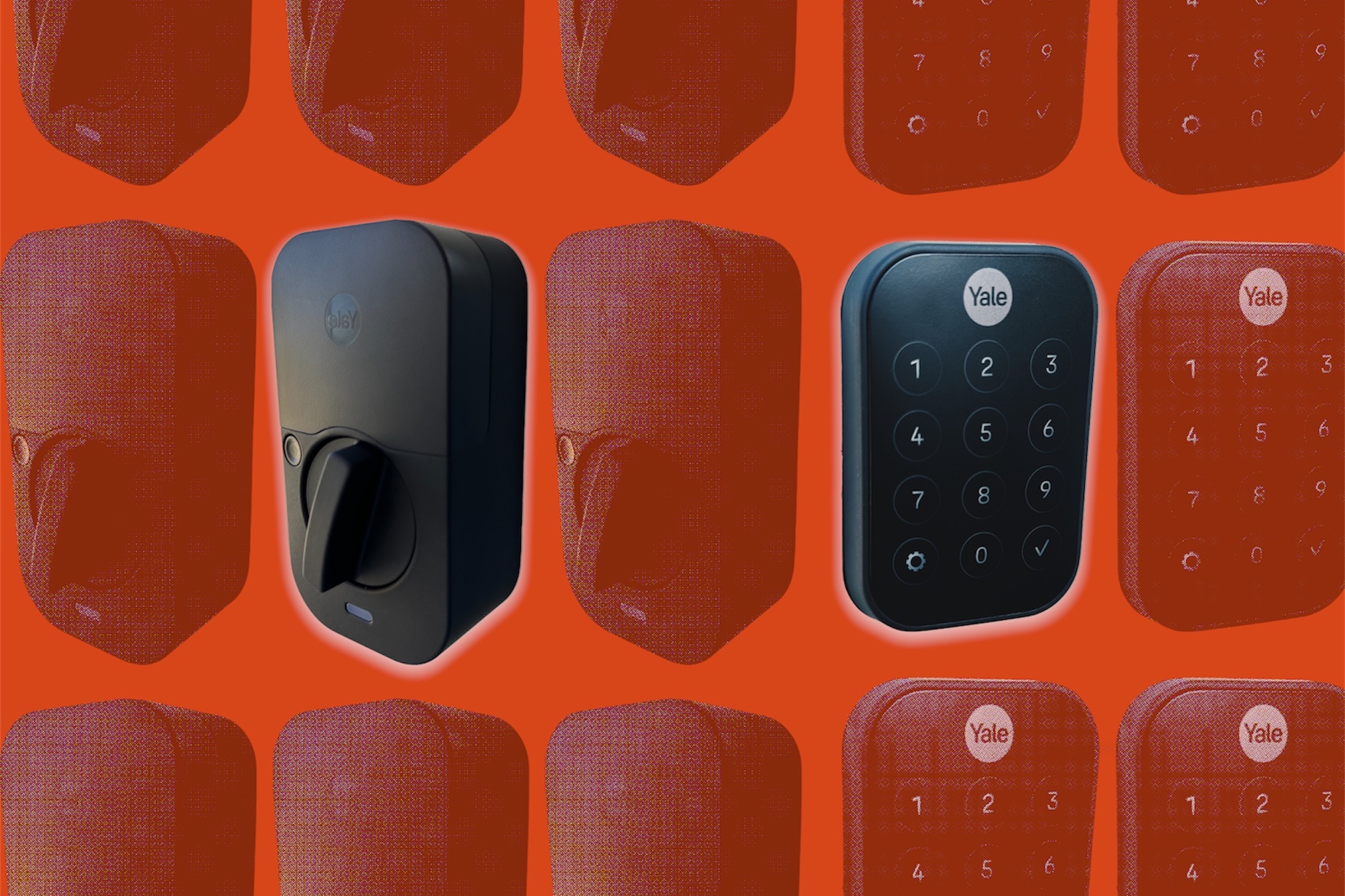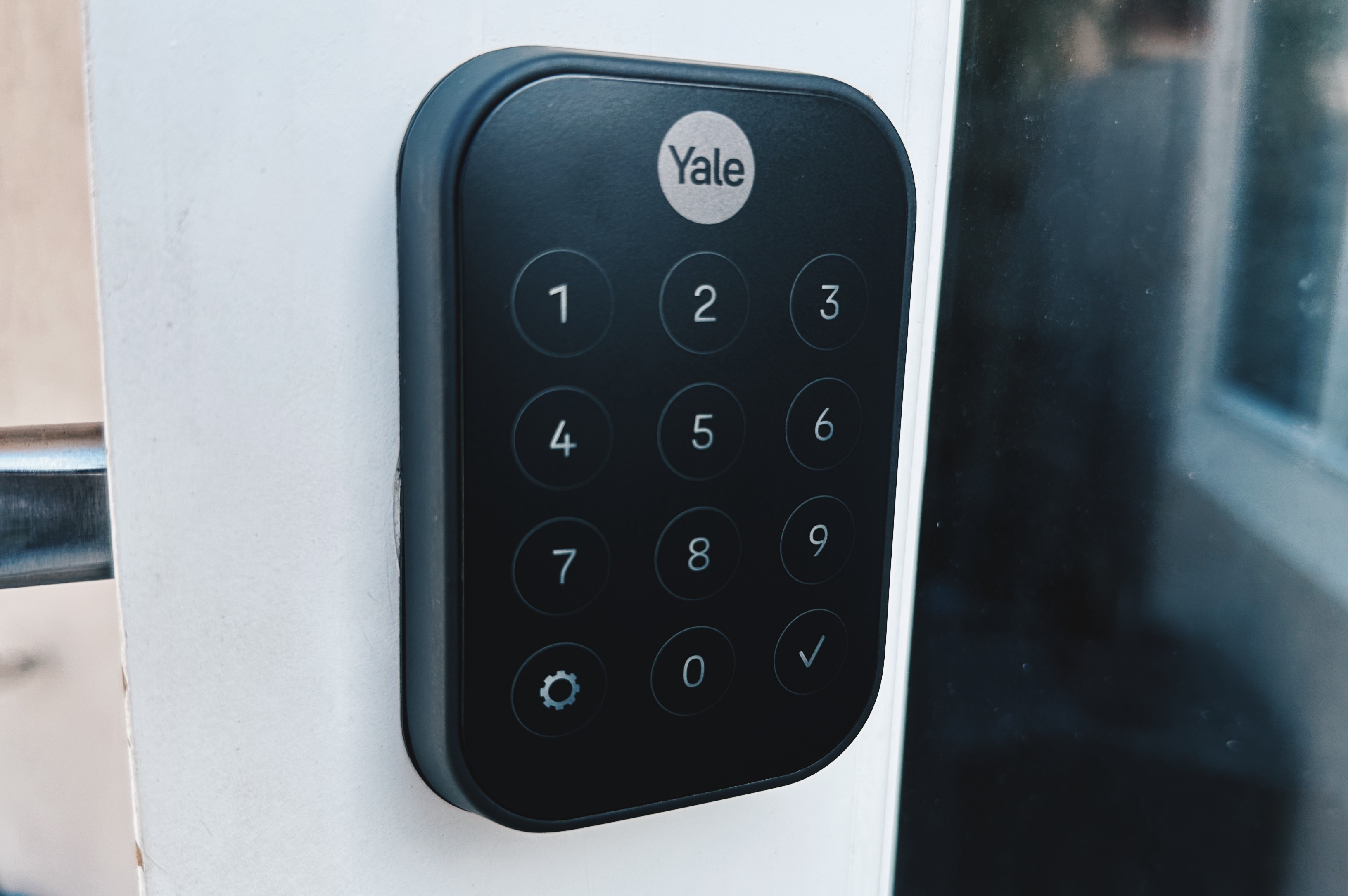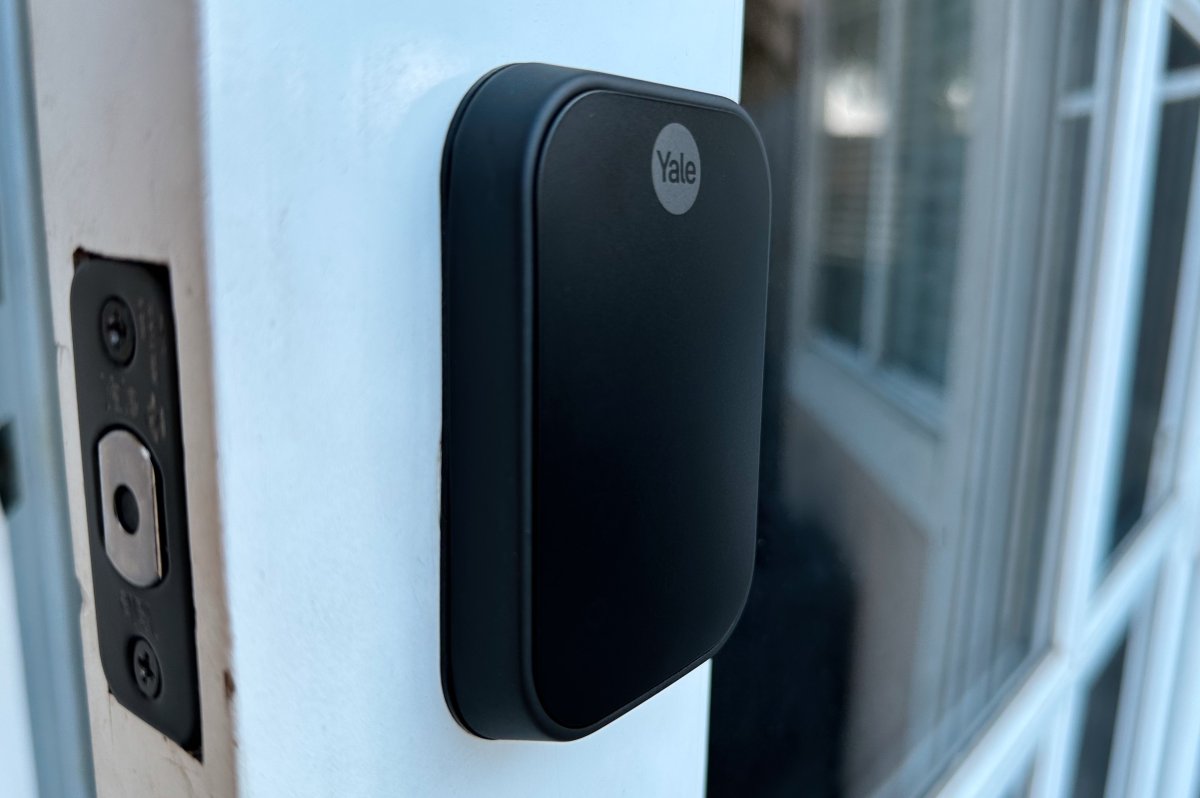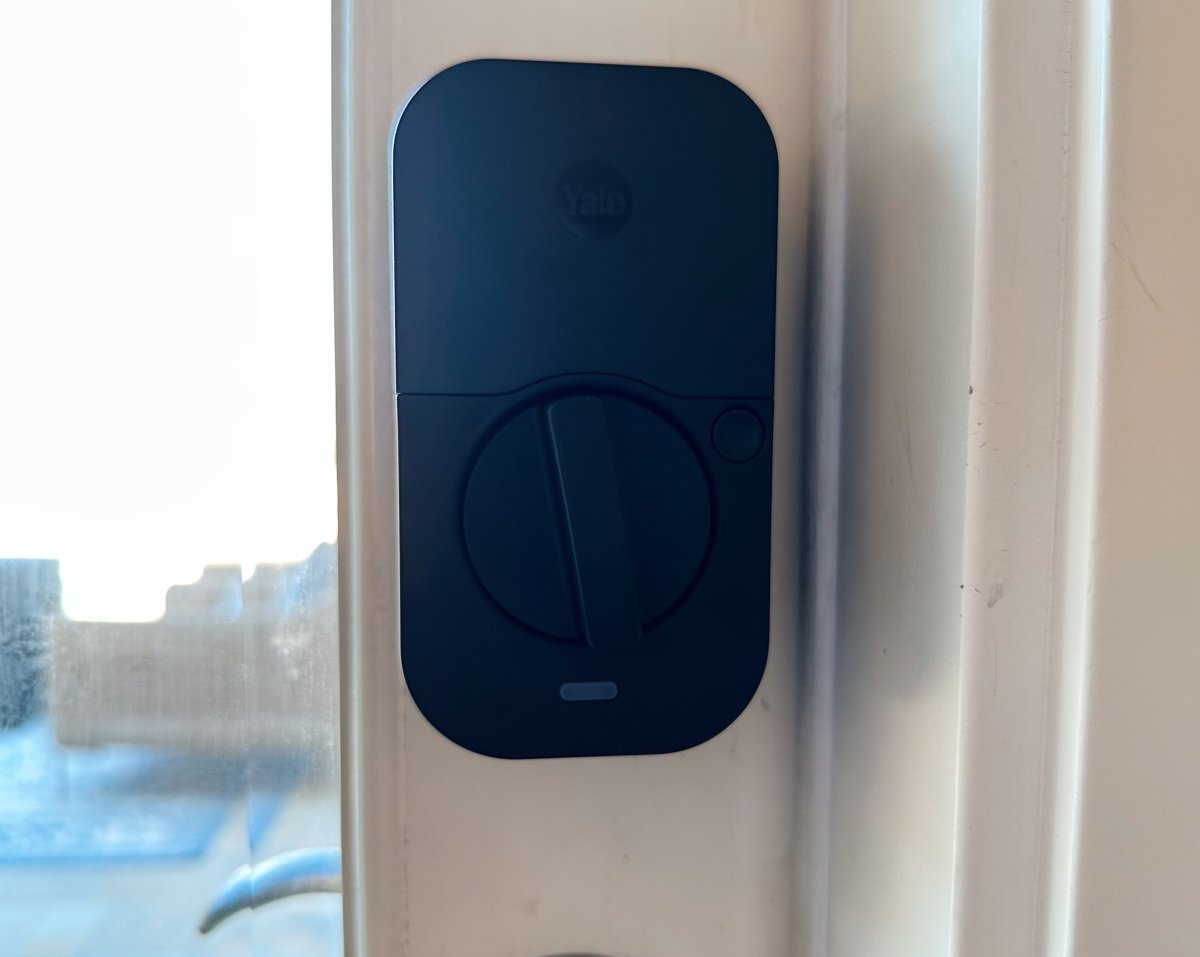

Smart locks have been decent for a while, but this year they seem to have gotten much better. From looks to functionality, there's almost no reason not to consider adding one to your home's door now. The convenience for guests and multiple owners is tremendous. The new Yale Assure Lock 2 makes a compelling case to be the one homeowners pick, with its sleek look, multiple methods for unlocking and virtual access sharing.
This latest smart lock from Yale wants to be everything to everyone and offers multiple configurations in the form of colors, button types and wireless technology. The Assure Lock 2 comes in either a touchscreen or keypad variety—without or with buttons. There's an option to have a physical keyhole or not. After that, you'll need to decide whether you want Wi-Fi support for remote access or if local Bluetooth connectivity is fine. Each of these options is available in black, bronze or satin nickel colors.
All of those choices might make some people happy, but I found them confusing, at least at first. I also worry consumers will like what Yale has to offer but be unable to decipher the subtle or minor differences between the choices. Still the one I tried (black, touchscreen, nonkeyed Wi-Fi) very quickly became one of my favorite smart locks.
TL;DR
Pros:
- Sleek and attractive
- Comprehensive feature set and platform support with Wi-Fi connection
Cons:
- Touchscreen can be hard to press at times
- No Apple Home Keys support
- No Amazon Key support
Buy at Lowe's.
Assure Lock 2 Variations

It might seem like there are several variations of the Assure Lock 2 because, frankly, there are. It can be a little hard to evaluate the hardware when there are slightly different variants. For example, while I wasn't enamored with the performance of the touchscreen number pad initially, I'm not sure how the keypad (with actual buttons) feels. The touchscreen needed firm presses in my experience. I usually started with too light of a touch and would occasionally need to try a second time to input my code.
The touchscreen option probably looks better as a blank slate, when it's not in use. The touchscreen also isn't difficult to use after becoming familiar with it. Your priorities and uses for the lock will really dictate which one is best. If you have lots of guests or run a rental business, the keypad option might help you avoid technical hurdles or entry frustrations.
I would recommend people spend the most time contemplating that choice between the touchscreen and keypad variants. The keyed option might be important for certain contexts, but I wouldn't want it. I realize I do have a bias toward technology, but I think key-free is the trend for most people.
The one area you won't have to decide immediately is connectivity. If you don't get the Wi-Fi version at purchase, a module can be bought and inserted into the lock at any point to give it Wi-Fi support. Having the feature does unlock plenty of niceties, including access to using Google Home, Amazon Alexa, Apple HomeKit and Phillips Hue integrations.
Using the Assure Lock 2

I replaced my August's Wi-Fi Smart Lock with this new Assure Lock 2 one. As much as I liked the smart lock August offers, its unique battery, which needed to be replaced every three months, was driving me crazy. The Assure Lock 2 with Wi-Fi still only gets three to six months of battery life depending on usage, but at least it uses four AA batteries, which I find more comforting in case I need to pick up some in a pinch.
The installation of this new lock only came with one minor issue. Whenever I locked it from my phone, it would perform the task but then make a grinding sound as if it were stuck. I knew it was a simple error because whenever I manually locked it with the turn knob, the dead bolt slid smoothly into its hole. Once I had a chance to dig into the issue, I discovered the hole for the dead bolt wasn't quite deep enough. I spent a few minutes expanding its depth, and the noises and messages of the lock's being jammed stopped.
Once it was up and running like normal, I primarily used the lock through Apple's Home app. I would also ask Siri to lock or unlock it from time to time. And although it could take up to 30 seconds at times via voice command, that worked great. The most glaring missing feature to me was support for Apple's new Home Keys. It allows HomeKit to create virtual keycards for Apple Wallet that can then be used with near field communication (NFC), so you can use an Apple Watch to tap to unlock.
Yale advertises use with Apple Watch, but that mostly means its own app is on the watch. There was no NFC support at launch. Yale's mobile Access app is perfectly fine—but not amazing. It is identical to the August app, if you've used that one. I like that Yale's mobile app shows a running history of all activity happening with the lock (if you have Wi-Fi). This includes noting whether it has been manually unlocked or which platform was used to perform the action, and by whom.
If you want to be alerted when the door is unlocked by a specific person or if the door is left ajar, you can create a smart alert inside the Yale Access app. In the app's guest list section, you can create entry codes with access all the time; with specific dates and times; or with a recurring time frame for entry. I found Yale's use of number codes to be pretty intuitive to create and share via text.
On the lock's touchscreen, you can tap the Yale logo for one-touch locking. This is a feature you can turn on or off in the mobile app. And, as a note, if the batteries die while you're on the outside, there is a spot on the bottom to touch a 9V battery to it and give it an emergency charge so you can get back inside.

Yale, August, Schlage and Level, Oh My
As a brief aside, I wanted to mention the current smart lock landscape. I've tried several top-tier smart locks over the last year, and I do think Yale, August, Schlage and Level are among the ones to consider. Each of them has its own strengths and weaknesses, but in general, these companies are producing compelling offerings.
I liked Yale Assure Lock 2's compact, modern look. It's not as invisible as Level's products, but it still has a clean aesthetic. The Assure Lock 2's locking mechanism wasn't quite as buttery smooth as the Schlage Encode Plus lock, but it's quiet and moved well. August is kind of in a class of its own because it attaches to an existing dead bolt, but, again, I still appreciate Yale's use of more standard batteries.
Should You Buy the Yale Assure Lock 2?

After spending plenty of time using it, I've been convinced that the Yale Assure Lock 2 is a great smart lock choice for either first-timers or seasoned smart home veterans. The different variants of the Assure Lock 2 allow people to keep costs down if they really don't want the extra functionality. The choices also seem to cater to renters who need a host of options to meet their guests' needs.
I wish this lock supported Apple's home keys for tap-to-unlock with an Apple Watch, but beyond that, there's not a whole lot else I found missing. The reliability of smart home platforms could be a wild card, depending on each person's software setup, but otherwise, I think the Assure Lock 2 should be a top consideration for people searching for a new smart lock.
Buy at Lowe's from $159.98.
Newsweek may earn a commission from links on this page, but we only recommend products we back. We participate in various affiliate marketing programs, which means we may get paid commissions on editorially chosen products purchased through our links to retailer sites.
Uncommon Knowledge
Newsweek is committed to challenging conventional wisdom and finding connections in the search for common ground.
Newsweek is committed to challenging conventional wisdom and finding connections in the search for common ground.
About the writer
Tyler Hayes is a product reviewer for Newsweek. He has contributed extensively to WIRED, The New York Times, Fast Company, ... Read more





